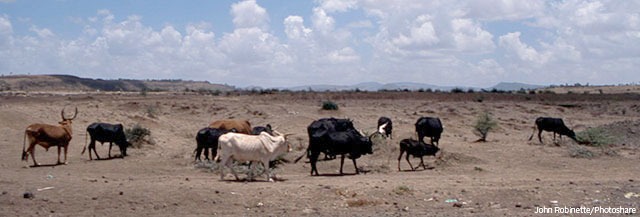
While the World Health Organization’s Director-General declared the end of the Public Health Emergency of International Concern regarding the Ebola virus disease (EVD) outbreak in West Africa in March 2016, recovery from the food security, broader economic, and psychosocial impacts of the EVD epidemic continues, as do reflections on lessons to be learned from the response.
On Thursday, June 2, 2016, the Project-Level Early Warning Interest Group hosted Brenda Lazarus, the Famine Early Warning Systems Network’s (FEWS NET’s) Deputy Decision Support Advisor, for a presentation on the early warning approaches FEWS NET has applied in Ebola contexts, lessons that have surfaced from this work, and next steps as FEWS NET continues monitoring in post-Ebola contexts.
About the PLEW Interest Group
The PLEW Interest Group aims to encourage the exchange of ideas, methods, lessons learned, and promising practices surrounding project-level early warning and response systems. While the interest group applies learning from these exchanges to enhance the PLEW element within USAID’s Office of Food For Peace (FFP) development food assistance projects, we encourage participation from FFP-funded and non-FFP-funded project stakeholders, from US government-funded and non-US government-funded program staff, and from other interested parties.
Learn more about the PLEW Interest Group and view past events.


